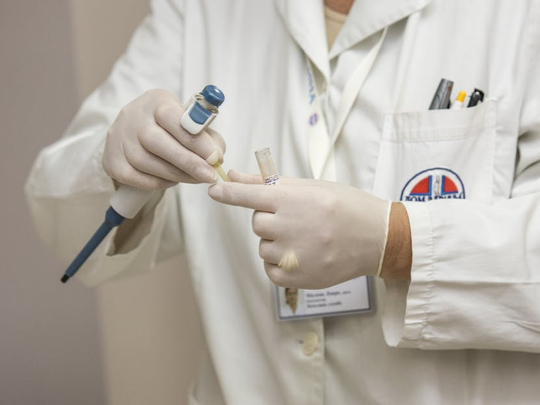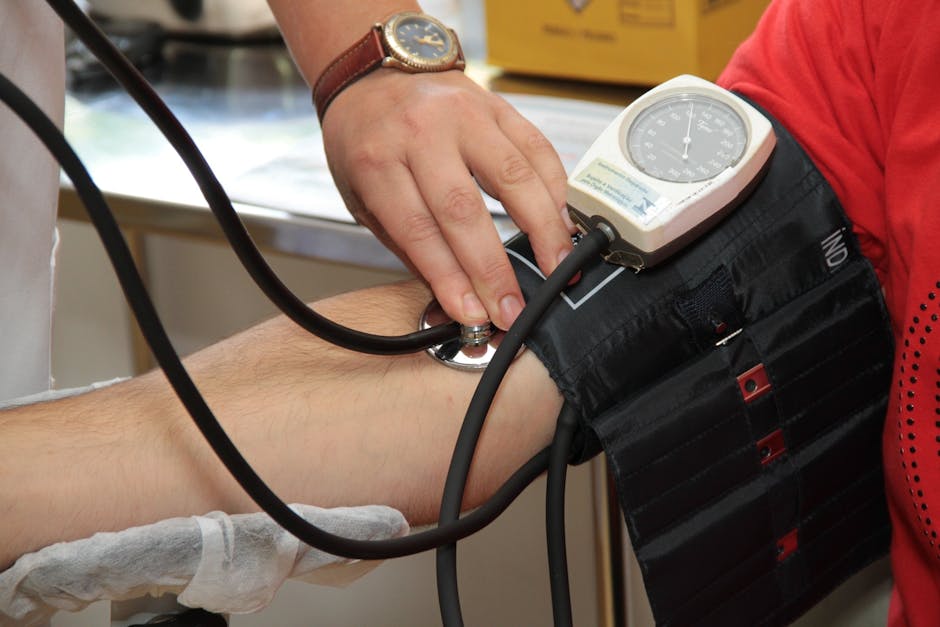
1. Breast Cancer

20 per cent of the time, breast cancer is detected via physical examination as opposed to a mammography screening. However, a mammography screening can detect cancer at very early stages before any symptoms even appear. Breast cancer can be a hereditary disease, but might also result from lifestyle factors such as obesity, alcohol excess, inactivity and its symptoms include a lump felt in the breast, a discharge of fluid from the nipple, changes to the colour or texture of the skin over the breast or scaling around the nipple. Even so many small cancers are not felt or seen and can be picked up by mammography screening.
Checkup period: It is recommended that you have a breast cancer examination every 2 to 3 years in your 20s and once every year in your 40s to ensure you’re always ahead of the curve.
2. Blood Pressure

High blood pressure is caused by many factors including obesity, smoking, eating too much salt and consuming alcohol. High blood pressure just increases the risk of general health problems. The higher the blood pressure, the higher the strain on arteries and the heart, resulting in artery damage overtime, causing health issues including heart attacks and failure, strokes, and kidney disease.
To avoid high blood pressure, try to stay away from added salt, a high carb diet, and high salt foods, and smoking; eat plenty of fruit and vegetables and engage in more cardio exercise.
Checkup period: Once a year at least to test your blood pressure and get an understanding of what you should do more or less of to maintain a balanced blood pressure.
3. Diabetes

Insulin is a crucial hormone secreted by our bodies that converts glucose into energy. To ensure you have high energy levels, as well as avoid nerve, eye, and kidney damage. Identifying your risk of developing diabetes can allow you to take up a positive lifestyle to reduce that risk, including maintaining a healthy weight, following a regular exercise schedule, and moderating the sugary food intake are all recommended preventive methods to follow.
Checkup period: Once a year blood test is recommended. This is a must if there is a history of Type 2 Diabetes running in the family. Otherwise, you can initiate your annual Diabetes blood testing at the age of 50.
4. Heart Disease

Keeping an eye on lipid (fat) levels may keep the cardiac risk away. A balanced level of fats and cholesterol in the body is crucial to protect against heart disease. However, having high levels of LDL-Cholesterol, VLDL Cholesterol and triglycerides, as well as low levels of HDL-Cholesterol may have the opposite effect. Having too much cholesterol in the body, builds up in the walls of the arteries, making them narrower, hence slowing down or blocking blood flow to the heart.
Checkup period: Make sure you do a lipid profile as well as a cardiac risk assessment once a year. Similarly, a cardiac risk assessment that is recommended every 3-5 years,
5. Bone density test

Bone density is detected by bone loss measurement in the body. This is more common in women than in men, and usually affects women who are above the age of 50. Bone loss results in Osteoporosis – a medical condition in which the bones become brittle and fragile due to loss of tissue.
Checkup period: It is recommended that women get a bone density scan at the age of 65. However, as bone density peaks around the age of 30, younger women are also advised to consider the test if they have risk factors for serious bone loss including low weight, a family history of osteoporosis or bone fractures at a young age, steroid medication use, gut problems such as celiac disease (gluten allergy).
6. Metabolic Rate
TSH (Thyroid Stimulating Hormone) is a hormone produced in the brain and controls the body’s metabolic rate. A high level of TSH in the body indicates that the thyroid gland may not be producing enough of the hormone, while a low level of TSH indicates the opposite. Nervousness, anxiety, irritability, mood swings, difficulty in sleeping, persistent tiredness and weakness, sensitivity to heat, swelling in the neck, an irregular or a fast heart beat are all indicators of an overactive thyroid. On the contrary, fatigue, weight gain, coarse, dry hair and skin, hair loss, cold intolerance and muscle cramps and aches all indicate an underactive thyroid.
Checkup period: If you are experiencing any of the above symptoms, it is recommended that you visit a doctor and get a TSH level test right away. But this test should be conducted on an annual basis, especially if there is a family history of a thyroid disease, a personal history of goiter, or any symptoms including fatigue, cold peripheries, unexplained weight gain, and hair loss. If an enlarged thyroid gland is suspected, a thyroid ultrasound can be done at any time.
7. Pap smear
Caused by a virus called Human Papillomavirus, and resulting in progressive damage to the cells in the lining of the neck of the womb, cervical cancer’s symptoms include bleeding between normal periods, after sex, blood in the urine and pain in the pelvis.
Checkup period: To detect cervical cancer or any suspicious cells that indicate a possibility of developing it, it is highly recommended to take a pap smear test every 2 to 3 years.
To learn more about tests and measurements, as well as other preventive health & wellness measures, please visit www.valiantclinic.com or call 800 VALIANT
Information provided by: Dr. Andrew and Dr. Fiona from Valiant Clinic – The Premium Outpatient multispecialty outpatient clinic in the UAE and the region, that offers diagnostic, wellness and healthcare services with an emphasis on preventive care, located at City Walk in the heart of Jumeirah, Dubai











